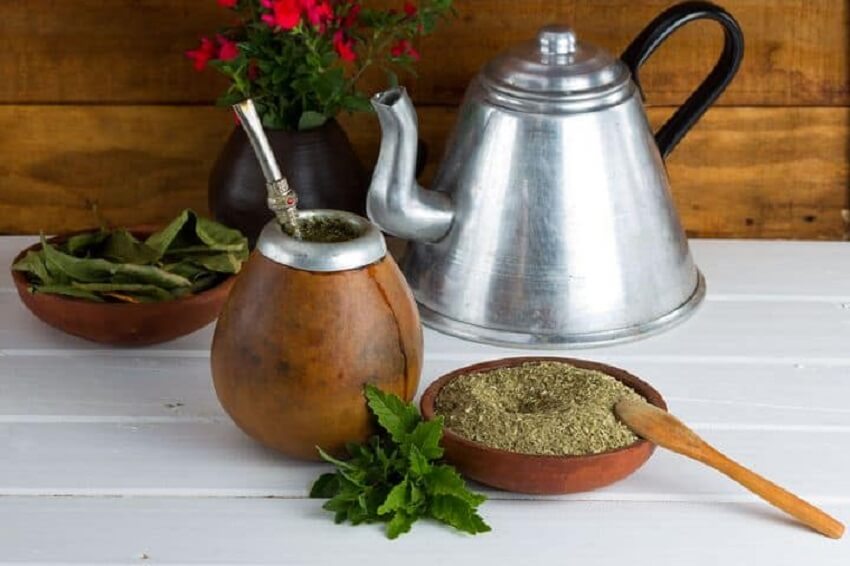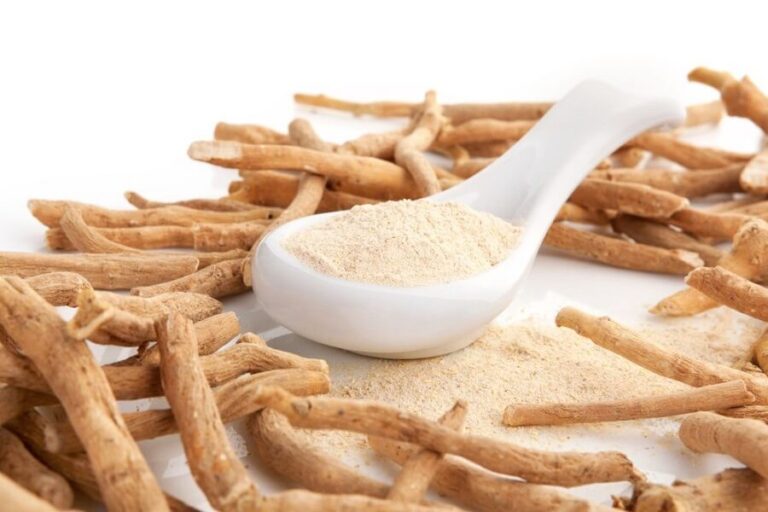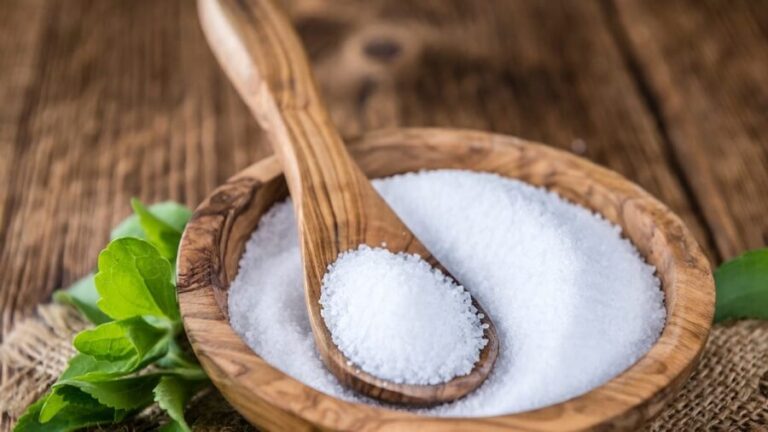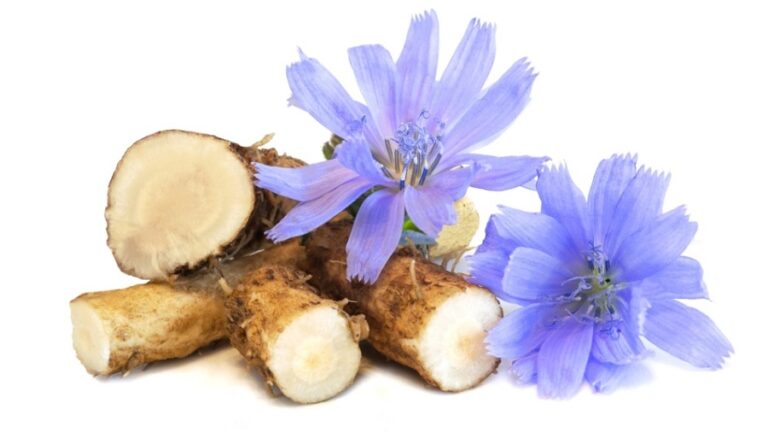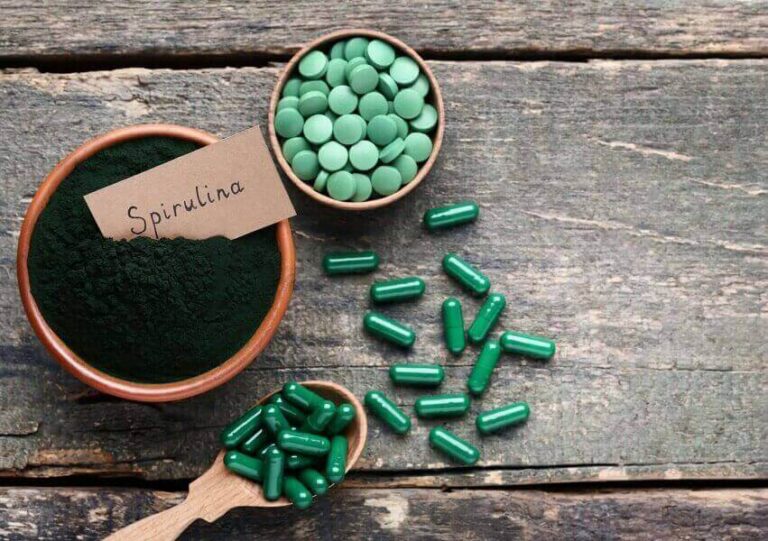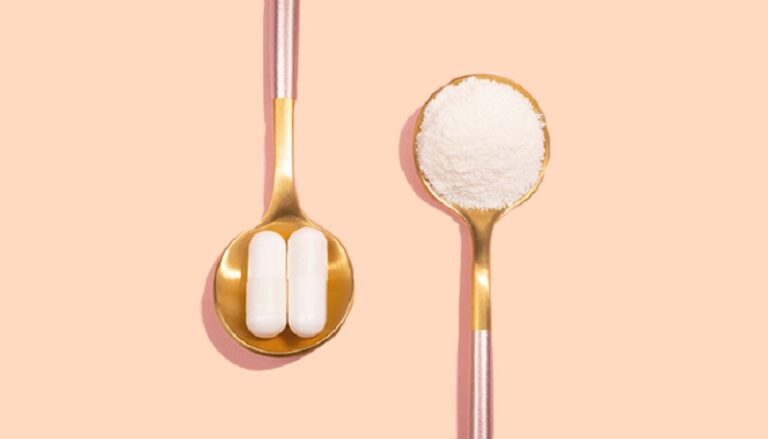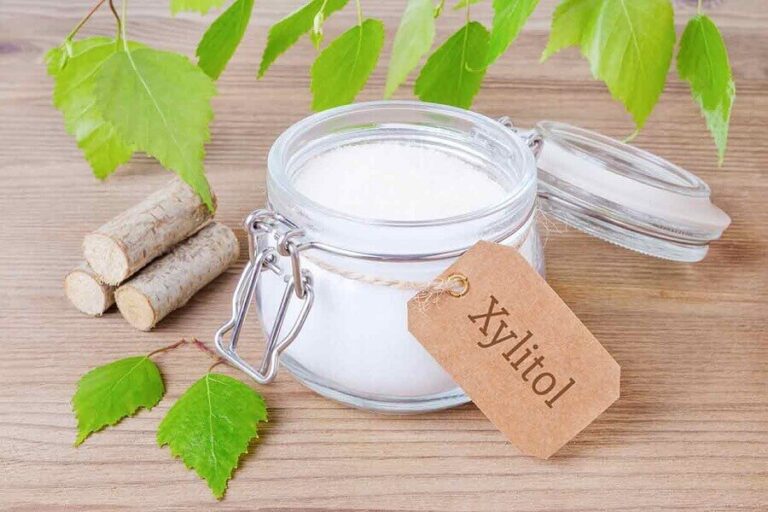Yerba mate – What is it?
The yerba mate is a derivative of the tree (yerba mate), a Paraguayan tree that can reach a height of 12-16 meters. Yerba mate contains high caffeine content, representing around 1-2% of the dry weight. (3) Therefore, one of its infusions’ most common uses and effects is energy, as it is considered one of the few natural thermogenic.
The guaraníe s the first ones to use yerba mate. They crushed the yerba mate leaves or put them in a gourd and drank the infusion using a hollowed-out cane, which today we know as a bombilla. Today drinking mate is a traditional custom in the countries of the silver basin: Argentina, Paraguay, and Uruguay.
What are the effects of yerba mate?
Like any other source of caffeine, yerba mate stimulates the central nervous system. This allows for increasing physical activity, concentration, and productivity. In addition, other components, such as theobromine and methylxanthines, can work synergistically with caffeine and enhance its antioxidant effects.
Caffeine improves mood in the short term, speeds up the heart rate, and raises blood pressure slightly. Some studies (2) (3) suggest that it can increase performance in sports due to the reduction of sensitivity to pain that occurs when training.
Benefits of drinking mate
The main benefits of taking yerba mate infusions are:
- The activation of the nervous system.
- The increase in respiratory capacity (as VO2 Max ).
- Reducing the sensation of muscle fatigue.
The peak of its effects occurs between 30-45 minutes after taking and stops after 3-4 hours.
Benefits of drinking yerba mate infusions:
- Reduce muscle fatigue
- Improve concentration
- Increase maximum breathing capacity
- Less pain when training
- Increase physical activity
- Powerful antioxidant
- It May help reduce bad cholesterol
Studies (3) (4) affirm that moderate yerba mate infusions increase the use of oxygen when breathing. As well as is an effective product to reduce pain caused by micro-damage to muscle fibers when training. Another benefit of taking yerba mate infusions is to counteract the effects of free radicals due to polyphenols, chlorogenic acid, and saponins.
How to prepare yerba mate infusions correctly?
Yerba mate infusions are traditionally prepared in the countries of the Plata basin: Argentina, Paraguay, and Uruguay. Depending on the area, they can be prepared both bitter and sweet, with milk, cooked, or even with fruit juices.
The traditional mate should be prepared as follows:
- Fill 3/4 full of a container made from pumpkin, glass, wood, metal, or other material.
- Cover the mouth of the container and tilt it 60 degrees to form a cavity. Add 50 mL of warm water to the free space and let stand for 2 minutes.
- Insert the bulb into the wet area to achieve a slight elevation.
- Add hot water (80 degrees) over the bulb, trying not to wet the entire surface.
- Note: if the mate is primed with boiling water, it quickly loses its properties and flavor.
Amount of caffeine in yerba mate
Three rounds of mate translate to about 70 mg of caffeine. A dose greater than 200 mg of caffeine per day can lead to serious side effects: nervousness, sleep disturbances, and anorexia.
While the amount of caffeine can vary significantly depending on the brand of yerba, method of preparation, and the number of infusions that have been made. (5) It can be said that the maximum number of dunks per day should be about nine rounds.
Caffeine as a thermogenic
Caffeine affects the activity of the central nervous system and the thermogenesis of a person. However, it is essential to know that drinking yerba mate does not significantly affect the number of calories burned at rest. Therefore, burning fat by drinking yerba mate in front of the TV is impossible. It is recommended to make yerba mate 20-30 minutes before exercising and at least 6 hours before bed.
Taking yerba mate can enhance physical training and eliminate the feeling of fatigue. Also, increasing the heart rate makes it easier for an athlete to enter the heart rate zone to burn fat. Which ultimately affects performance and energy expenditure in sport.
Yerba mate vs Guarana vs coffee vs té
The chemical structure of caffeine in yerba mate is identical to any other natural source, including coffee and guarana. Before, it was called mateine to mate’s caffeine, although today it is considered a mistake. In caffeine, yerba mate infusions have even higher content than coffee and guarana.
The caffeine content in infusions:
- Yerba mate – 70 mg
- Coffee – 50 mg
- Guarana – 50 mg
- Green tea – 35 mg
It should be noted that the values may vary depending on the preparation method. Mate, guarana, and coffee share other components: kaempferol and anthocyanins such as quercetin. These compounds have antioxidant properties; they can combat oxidative stress. Finally, studies have confirmed a more significant presence of saponins and chlorogenic acid in inmates. (5)
Caffeine as a thermogenic
Caffeine affects the activity of the central nervous system and, therefore, the thermogenesis of a person. Guarana fruit supplements do not significantly affect the number of calories burned at rest. So burning fat by taking guarana in front of the TV is impossible. It is recommended to take guarana powder about 20-30 minutes before exercising and at least 6 hours before bed.
However, taking guarana powder can enhance physical training and eliminate the feeling of fatigue. Also, increasing the heart rate quickly makes it easier for an athlete to enter the pulse zone to burn fat. Which ultimately affects performance and energy expenditure in sport.
Contraindications of yerba mate
In usual doses, mate does not have toxicity or side effects. Commission E of the German Ministry of Health does not indicate that side effects, contraindications, or interactions have been described using mate leaf at therapeutic doses. (5) However, some studies suggest a higher probability of certain types of cancer with prolonged hot mate consumption. (6)
The caffeine in yerba mate powder is a central nervous system stimulant. Doses close to 400-500 mg can cause nervousness, anxiety, and panic attacks. Remember that one infusion of yerba mate contains about 70 mg of caffeine.
Yerba mate is contraindicated for people with chronic cardiovascular system diseases and who take medications to regulate blood pressure. Caffeine can interfere with certain blood-thinning medications, just as it should not be combined with psychotropic drugs and antidepressants.
Yerba mate is derived from a tree of South American origin. Its use is traditionally frequent in the countries of the Río de la Plata: Argentina, Paraguay, and Uruguay. Due to its high caffeine content, one of the effects of yerba mate is as a thermogenic sports supplement. It is recommended to take nine rounds per day at a temperature below 80 degrees. Studies suggest that one of the contraindications is an increased chance of esophageal cancer if taken for a long time.

